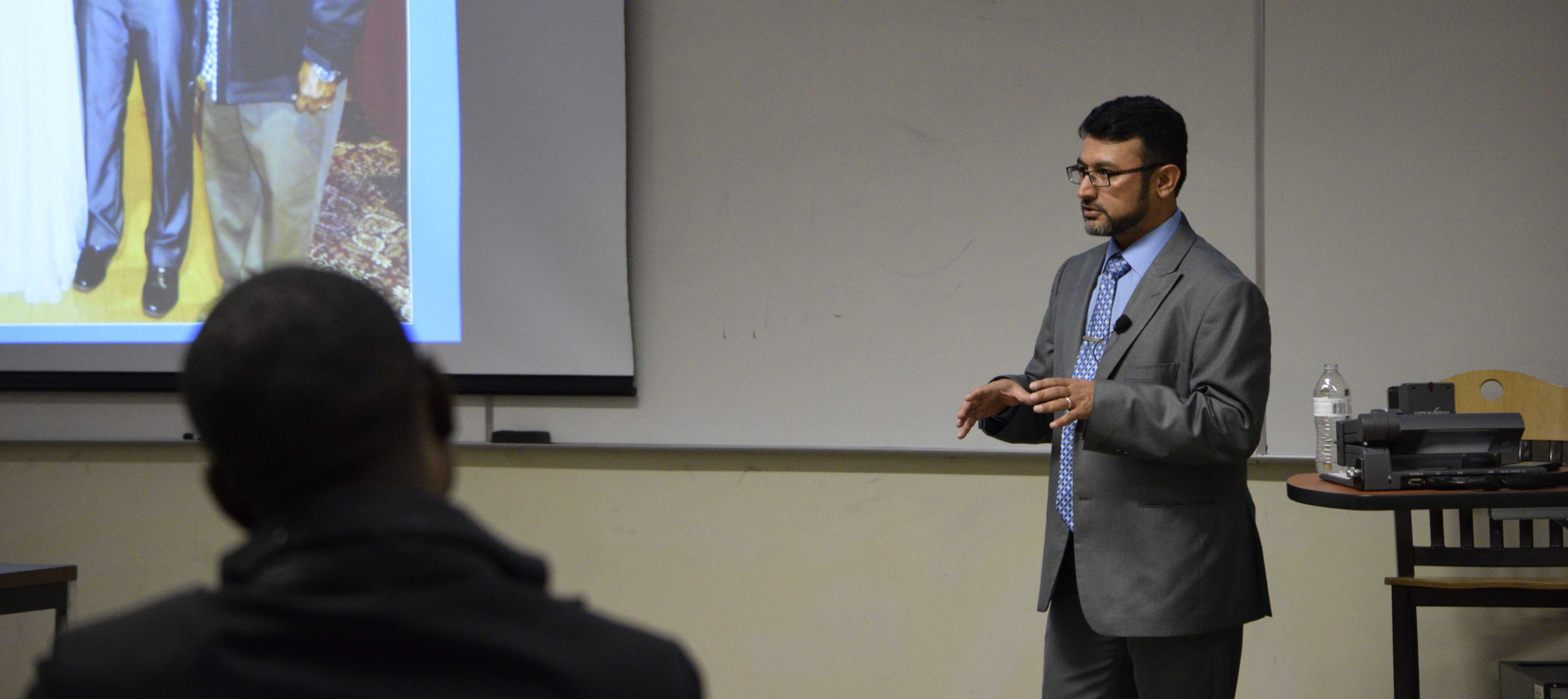At 5 p.m. on Friday, Oct. 13, the Michigan Tech community joined the Muslim Students Association for the annual cultural lecture. The lecture, according to the association, presents key concepts about Islam and explains fundamental beliefs and practices Muslims follow in their daily lives. The guest speaker was Dr. Tamim Ahmed Saidi.
Explaining the Islamic religion and its beliefs, Saidi said Islam means “peace through submission to God.” Islam is a monotheistic religion. It is “a way of life,” Saidi said. This peace, according to Saidi, is not only related to how humans should live in harmony with one another but also how people should relate to all the elements of the earth such as plants, animals and water bodies. In exemplifying, “2.5 percent of one’s accumulated wealth goes to the poor and needy,” Saidi asserted. It is when a person is in harmony with the moral and spiritual principles that the Quran asks of them, that a person can be considered a good Muslim.
Responding to an audience member’s question regarding common notions that Islam imposes restrictions on women, Saidi said, “Not allowing women to drive is not an Islamic practice.” He continued to give a brief explanation about Saudi Arabia’s case.
According to him, Saudi Arabia’s situation was based on a context where there were attacks on women sometime in history from the Taliban, hence the thought that women need some kind of protection. But the situation is changing now. He also said Muslim women all over the world are as free as Muslim men because Islam believes that both genders are equal in the eyes of God. “Every Muslim man and woman is allowed to get an education,” he concluded.
Although it is unclear when Islam came to the United States, some historians posit that the earliest Muslims came from the Senegambian region of West Africa in the early 14th century. Muslim immigrants from Syria and Lebanon came to the United States between 1878 and 1924. Their early settlements were in Ohio, Michigan, Iowa and the Dakotas. The American Muslim Council claims there are currently 5 million Muslims in the U.S. while the Center for Immigration Studies suggests that the figure is closer to between 3 to 4 million.
The guest speaker Saidi, is a pharmacist, Islamic cleric and speaker on Islamic religious issues. He fled as a teenager from Afghanistan to Pakistan, then to Minnesota in 1990, where he attended the University of Minnesota.
Speaking to The Lode, Sara Dancy, a freshman environmental engineering student said, “I found that much of what I thought I knew about Islam was way wrong. Just one example is that I thought polygamy was okay for Muslims to practice, which isn’t at all correct! Islam is completely different than what I thought. Good Muslims are kind to everyone, regardless of their beliefs; they give to those in need. A good Muslim is simply a good human being.”
She concluded, “We don’t hear a lot about what everyday Muslims do. We hear more about Islamic terrorists, and it’s hard to see past those radicals who contradict what the Quran actually says. They don’t represent everyone who practices Islam.”


